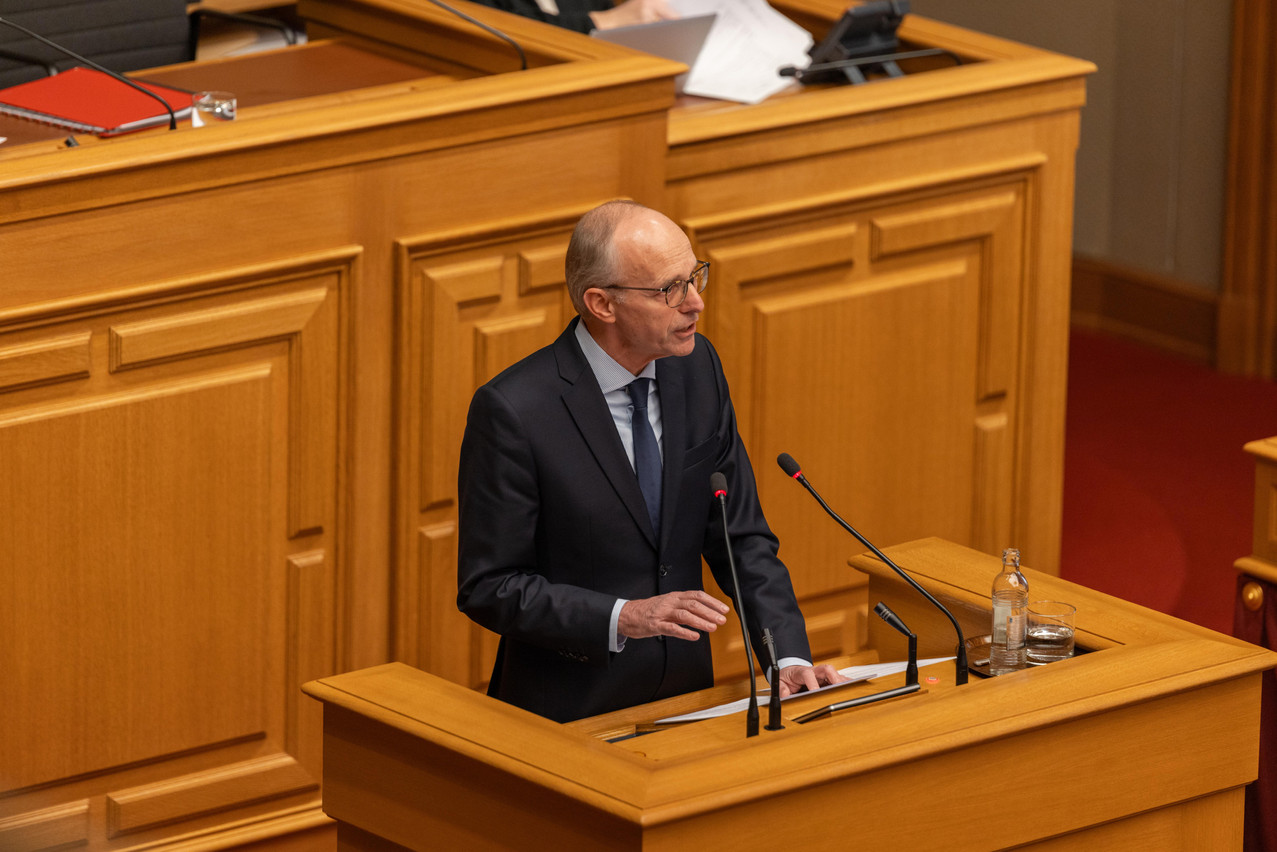Impressed. (CSV) readily admits. “Making a government statement is a very impressive thing. It’s a very important moment for the country and therefore also for me as the new head of government. This legislature will see the first government between Christian Socialists [CSV, editor’s note] and Liberals [DP, editor’s note] for 20 years. It’s a new beginning for the country.”
Covering all the aspects of a 209-page programme in just one hour is quite a challenge. “I wanted a government statement limited to one hour. We could have talked for three hours, but I felt it was essential to concentrate on a few subjects, including, of course, purchasing power and housing, and to highlight certain practical aspects of government policy.”
Summing up the prime minister’s speech, he sought to combine a strong economy, a responsible and efficient welfare state and a pragmatic ecology, and, in his words, to “find the right balance between these three subjects.”
Opposition remains cautious
Mission accomplished?
On the majority bench, (DP) appreciated the fact that the prime minister had taken the time to say that “the policies pursued in recent years by a completely different coalition had included many good things.” On the substance, “I thought it was the speech of a convinced European, of a prime minister very motivated to begin his work. There are many elements that were in my party’s election manifesto, whether it be purchasing power, taxes, the economy, schools or the environment. This shows that during coalition talks, we were able to impose our point of view.”
On the other hand, the dosage of Frieden’s prescription leaves the opposition on its own two feet.
(LSAP) saw in this speech the use of old recipes, old medicines. “The prime minister confirmed that this coalition agreement was very much focused on tax incentives and in its social aspect would resort to old recipes. We’re still not satisfied.” Asked whether the LSAP faction could vote confidence, he replied, “We will discuss it, but I am pessimistic about the approach chosen.”
(déi Gréng) fears a policy “that risks costing the public dearly, especially the most vulnerable.” She also regrets the vagueness that remains over the practical implementation of many of the announcements made, particularly on housing. Moreover, she regrets that Frieden continues to pit housing against nature conservation. “It’s an outdated vision, and I hope that the government will try to mobilise the public instead of giving them the impression that protecting nature is too much baggage to carry.”
(ADR) on the government statement? “Nothing new compared to the coalition agreement. It was a bit like a speech that politicians make on Sundays... To the tune of ‘all’s well in the best of worlds’…” And he is waiting for action before making a statement. And while on certain points--housing, the economy, security--he says he can identify with them, he will not be voting for confidence on Thursday 23 November.
Next stage: the 2024 budget
The opposition is united on one point: the lack of funding for the tax cuts and investments announced.
This gap will have to be filled when the new government drafts its first finance bill. At present, the country is living with a temporary finance budget. The 2024 budget will be the government’s first major political act, and it will be scrutinised--by the political parties, but also by Brussels--not least because it will set the tempo for the programme and also limit its ambitions.
The European Commission has with the European Council’s budget recommendations of July 2023, and it considers that Luxembourg’s draft budget plan “is not fully in line with EU recommendations,” However, the commission adds that “due to changes in government, Luxembourg has presented a draft budget plan without any change in policy.” And it is impatiently awaiting the update.
This article was first published in French on . It has been translated and edited for Delano.
